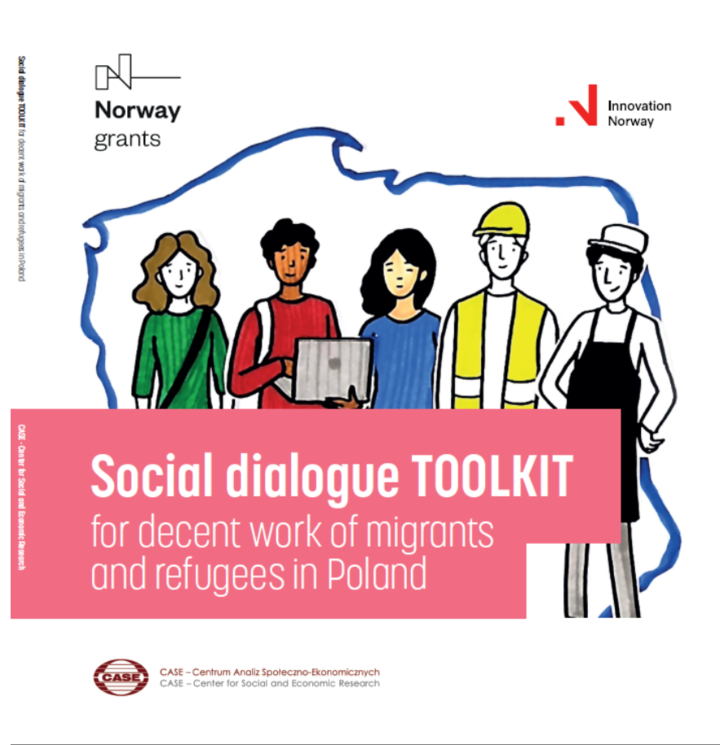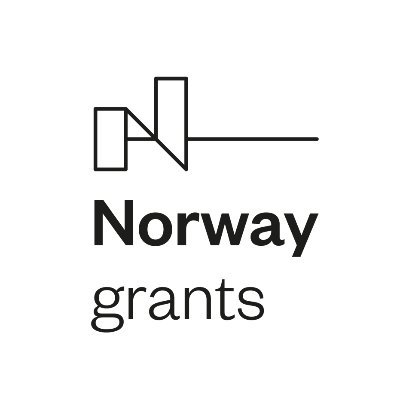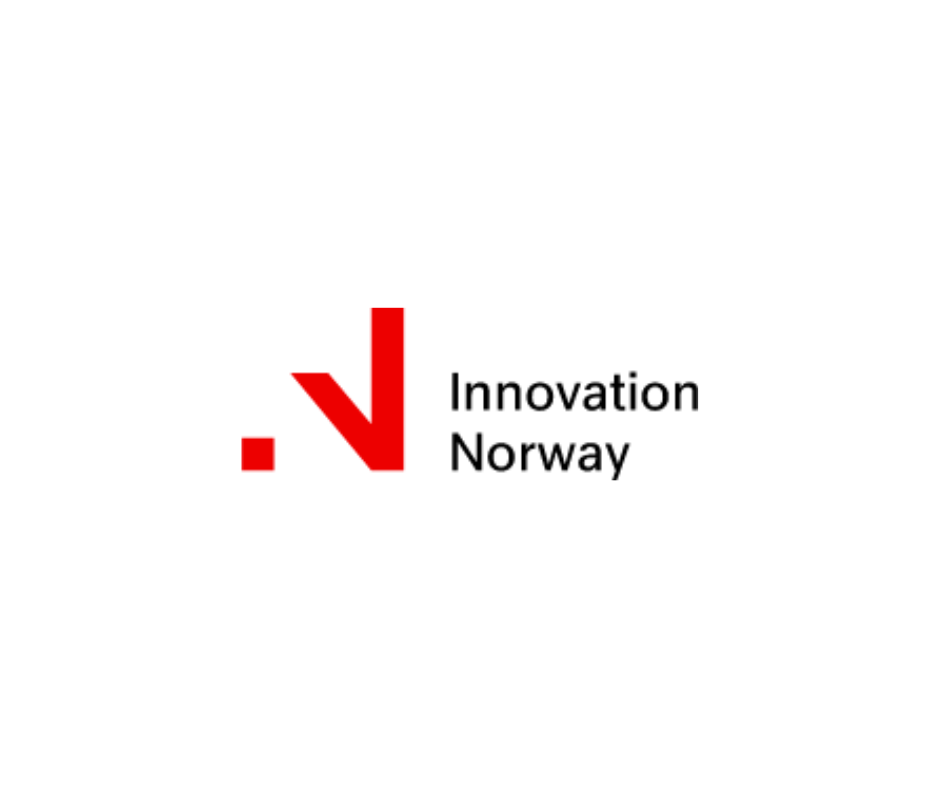 Homepage CASE
Homepage CASE
Selected values

Social dialogue TOOLKIT for decent work of migrants and refugees in Poland
-

Oskar Chmiel
Oskar Chmiel holds a PhD in Social Sciences with a specialization in Political Science from the University of Wroclaw. He is particularly interested in the political and social aspects of international development cooperation, migration, and trade. Prior to joining CASE, Oskar gained experience working, among others, as an intern at the Polish Centre for African … <a href="https://case.dev10.pro/publications/social-dialogue-toolkit-for-decent-work-of-migrants-and-refugees-in-poland/">Continued</a>
Articles from this author:
- Poland’s Migration Strategy for 2025-2030 – Expert Commentary
-
V4 Development Cooperation Trialogue: Reinforcing Synergies, Sharing Good Practices
V4 Development Cooperation Trialogue: Reinforcing Synergies, Sharing Good Practices. A Guide to participation in EU development funding The study is the result of V4DevCo project aiming at enhancing knowledge base on participation of V4 non-state development actors in EU development funding programs. The Guide includes a set of recommendations developed with contribution of representatives of … Continued
-
Energy policy and the labour market: consequences for employment in regions undergoing energy transitions
This study examines the socio-economic situation of three lignite regions in the process of transitioning out of coal mining: Lusatia in Germany, Wielkopolska in Poland, and Upper Nitra in Slovakia. It assesses the effectiveness of various instruments, factors and approaches in creating quality jobs, employment, and economic growth. The research results suggest that a successful … Continued
-

Jan Bazyli Klakla
Dr. Jan Bazyli Klakla holds doctorates in law and sociology from the Jagiellonian University in Krakow, where he also completed studies in law, sociology, and cultural studies, alongside postgraduate studies in international migration at the University of Warsaw. He is currently a Director of Migration, Social Policy, and Development Cooperation at CASE – Center for Social and Economic Research in Warsaw, and a post-doctoral researcher at the Center for Legal Education and Social Theory at the University of Wrocław. Dr. Klakla has been involved in and has led numerous national and European research projects, including those funded by Horizon Europe, Norway Grants, and Polish National Science Center. His work also includes providing consulting and expert services to key European institutions such as the Committee of the Regions, the European Economic and Social Committee, and CEDEFOP (European Centre for the Development of Vocational Training). He has served as an expert in the “Safe Krakow - Security Strategy for Krakow” program. Dr. Klakla is the editor of Law and Culture. Reconceptualization and Case Studies (Springer Nature, 2021) and the author of Law and Acculturation. Conceptualisation and Empirical Case Study: Slavic Migrants in Poland (Palgrave Macmillan, 2024) and Studying in Times of Crisis. Acculturation and Adaptation of Ukrainian Students at Kraków Higher Education Institutions amidst the COVID-19 Pandemic and Russia's Aggression against Ukraine (Brill, 2025). In recognition of his scholarly contributions, he was awarded first prize in the competition of the Association of the Philosophy of Law and Social Philosophy (IVR) – Polish Section for the best doctoral dissertation in the theory and philosophy of law. His research interests span migration, sociology of law, educational research, public policy analysis, customary law, and the methodology of social sciences.
Articles from this author:
-
Blueprint and Methodology for Innovative Governance
The publication is a key deliverable within the BioBeo project, funded under the Horizon Europe program. It provides a structured approach to integrating bioeconomy education into school curricula across different institutional and social environments. The report examines the actors involved in curriculum decision-making, from policymakers and school administrators to parents, students, and businesses. It categorizes existing procedures for introducing new content into schools, whether initiated by teachers, school heads, or government authorities. Key barriers—legal, organizational, and socio-cultural—are identified, along with strategies to overcome them. A central theme is the importance of inclusive governance in education, advocating for participatory decision-making that involves various stakeholders. Recommendations highlight the need for flexibility in curriculum design, adequate funding, professional support for teachers, and depoliticization of educational content. The report concludes by situating these findings within the broader BioBeo curriculum framework, reinforcing the role of education in fostering a sustainable and circular bioeconomy.
- Poland’s Migration Strategy for 2025-2030 – Expert Commentary
-
178th mBank-CASE Seminar Proceedings: Immigration and the Labour Market in Poland
Over the last dozen years Poland became an immigration country. The 178th mBank-CASE Seminar proceedings is devoted to this process - from various perspectives. The data speak for themselves. Immigration provides significant support for the Polish labour market. Poland is facing a rapid population decline. According to projections by the Ministry of Finance in 2022, by 2030 the population of Poland could decrease from the current 37.75 million to 36.6 million, and by 2050 to 34.1 million. The percentage of people of working age will decrease, while the elderly population will increase. Immigration may provide a solution to this problem. In 2022, around 100,000 people from Belarus arrived in Poland, most of them actively participating in the labour market. In addition, there are 1.2 million Ukrainians who stayed in Poland after Russia's invasion of Ukraine. It is therefore necessary to develop a long-term immigration, education and social policy to retain immigrants and integrate them into society and the labour market. This is what eminent experts who have been researching migration processes for years write about in the first two chapters of these Notebooks: Dr Maciej Duszczyk, as well as Dr Agata Górny and Dr Paweł Kaczmarczyk, from the Centre for Migration Research, operating within the University of Warsaw. The third chapter is devoted to the situation of female domestic workers. Table of Contents Ewa Balcerowicz - Introduction p. 5-6 Maciej Duszczyk - Chapter 1: Factors and conditions in Poland’s transformation into an immigration country p. 7-14 Agata Górny, Paweł Kaczmarczyk - Chapter 2: Immigrants and war refugees from Ukraine on the Polish labour market: opportunities and challenges p. 15-33 Jan Bazyli Klakla - Chapter 3: In the Shadows. Ukrainian Domestic Workers in Poland p. 34-44
-
Blueprint and Methodology for Innovative Governance
Related publications
Thanks for joining us!
You're now part of a community that values [your newsletter's focus]. Get ready to stay informed, inspired, and engaged with our carefully curated content.


